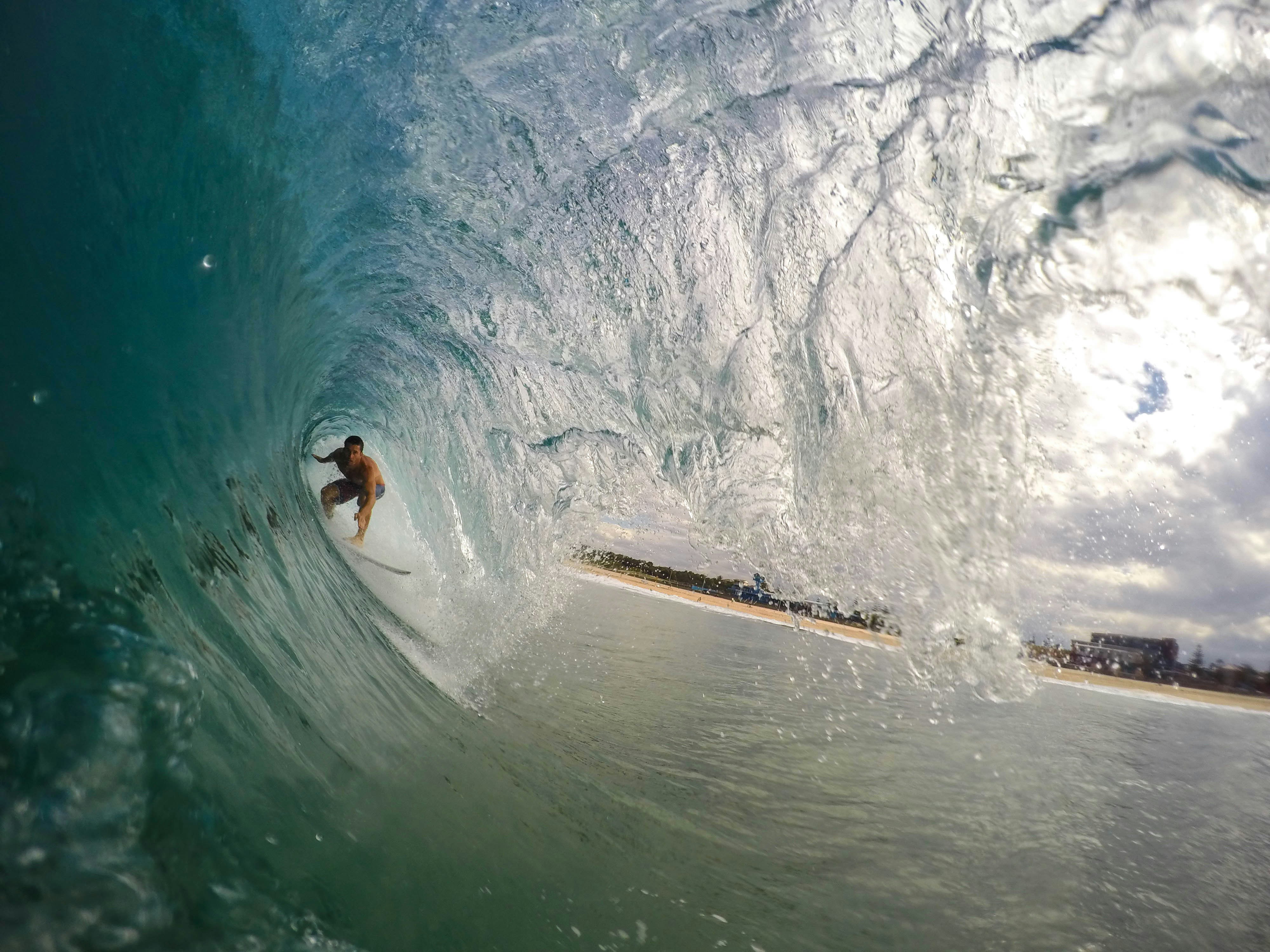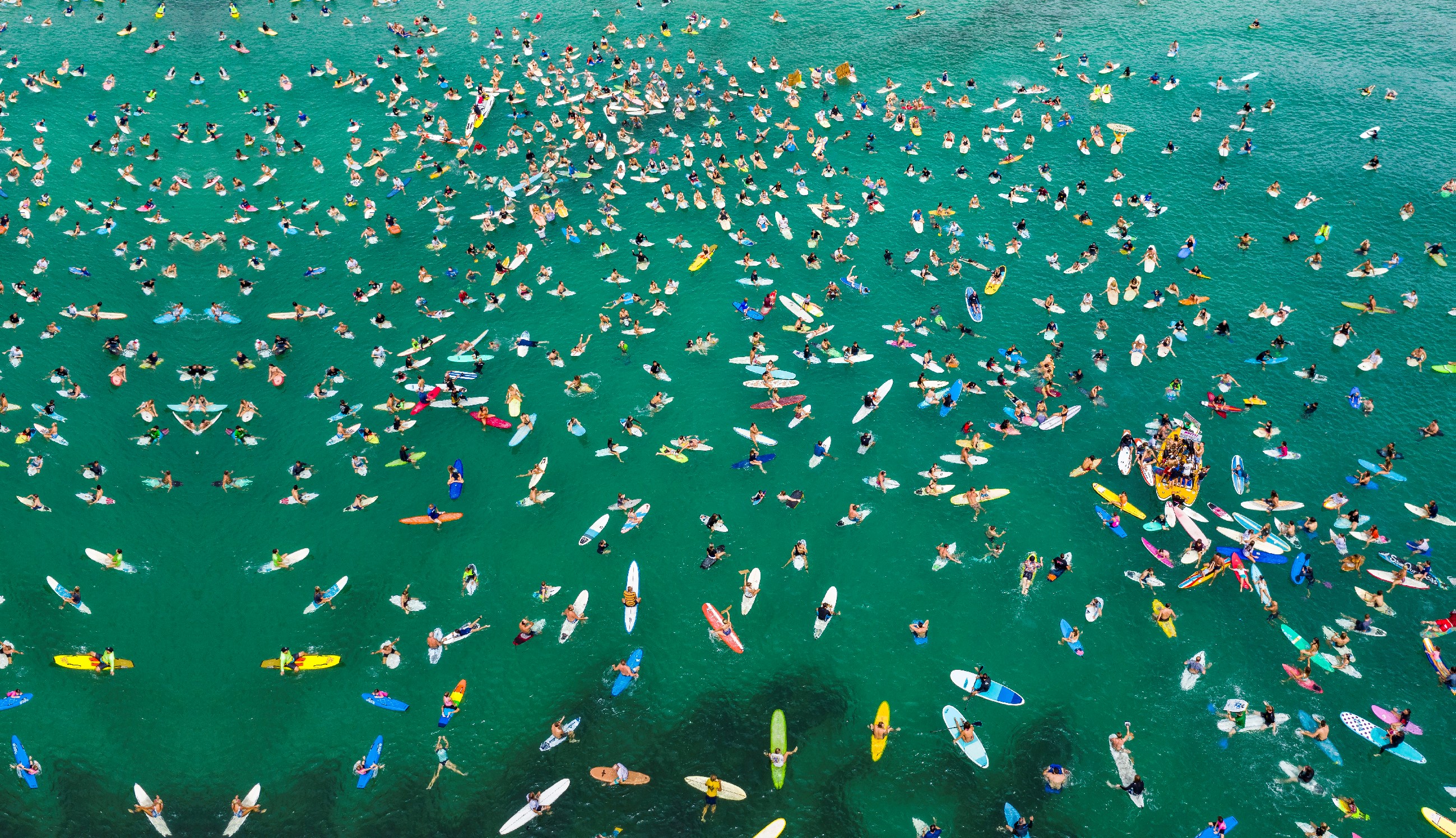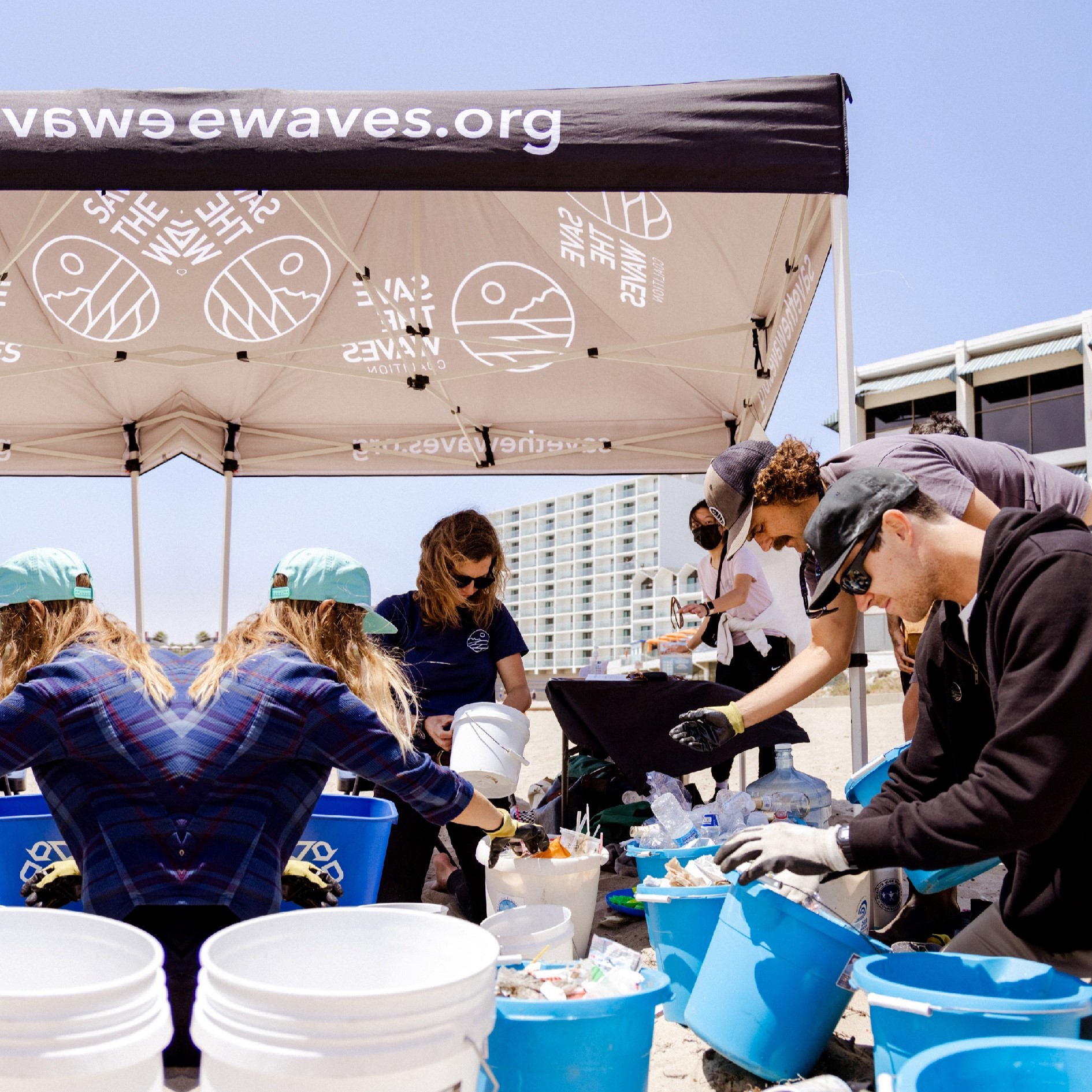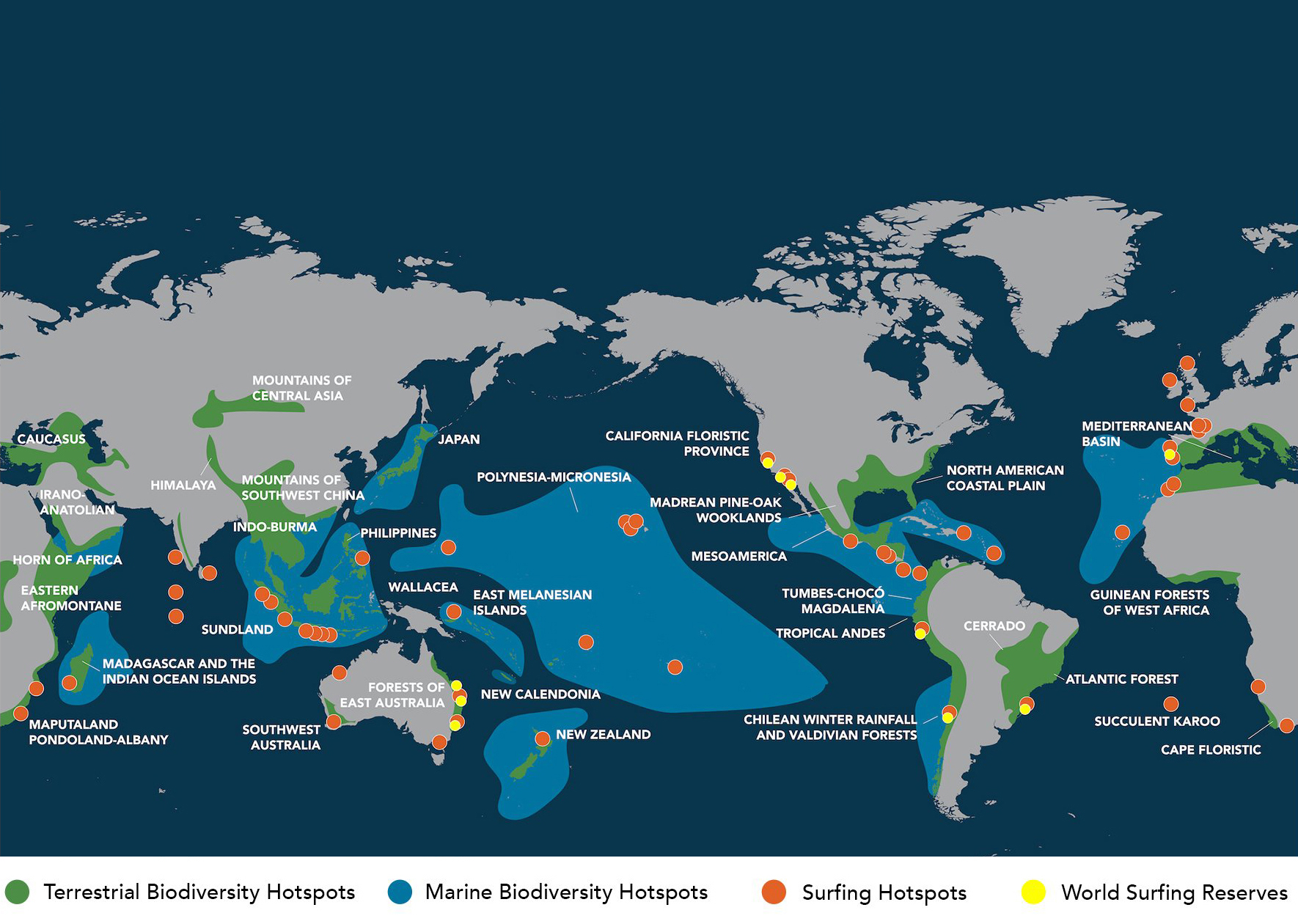Surf culture: when activism makes some waves

Protect oceans around the globe and vulnerable coastal groups. A clear line to guide the committed surfers’ community. Witnessing the rapid decline of a fragile ecosystem, they are stepping up to defend their surfing grounds and take their role as ocean ambassadors deeply to heart.
Behind the Tahitian controversy
The surfing contest for the Olympic Games in Polynesia has been a significant controversy. At the centre of the debate: the construction of an aluminium tower to accommodate the competition judges and cameras. Local environmentalists and surfers, including Tahitian surfer Matahi Drollet, among the leading figures, raised the associated risks to bring a stir on social networks. Drollet denounced the depopulation risk of vast coral reefs stretches and the possible spread of ciguatera, a disease that poisons fish and makes them inedible. These two phenomena already occurred during previous construction works in fragile environments. Among the Olympic Games candidates, the Polynesian Kauli Vaast also expressed his concern about this threat to the environment. Although delighted to be part of the qualifiers, Vaast stated the waves’ “mana”, a vital spiritual energy for the local beliefs, must be respected. “If you respect the ocean, it will respect you back”. The surfing spirit establishes a relationship with the ocean based on humility and consideration.

Towards eco-conscious surfing
Beyond the Olympic Games’ media coverage, many people want to improve their footprint while practising waves sport. First and foremost, in terms of travel. More and more surfers are abandoning well-known spots on the other side of the world in favour of local destinations that are less glamorous but more respectful of the environment. Think of places like Ostend or Blankenberge on the Belgian coast or even certain rivers in England. Anything's possible when you love surfing! Reducedimpact equipment is also entering the market. Nomads Surfing, a start-up recognised for its sustainable practices as a certified B Corp, promotes accessories made from recycled polystyrene, fishing nets and corks.
They also offer traction pads made from recycled flip-flops to replace the wax traditionally used to prevent slipping and which is harmful to the environment. When encountering water, the petrochemical substance contained in the wax dissolves and releases toxins. Another inspiring example is The Old Shell, based in Brittany, France. They specialise in selling of second-hand wetsuits, repair and upcycling to create bags, fanny packs and cushions. These are just some of the initiatives contributing to the great hope that surfing is moving closer to a net-zero footprint. This transition will enable surfing communities to align with the tradition of a sport that, since the 18th century, has embodied an art of living that promotes the reconnection of humankind with nature.

Queensland, Australia, 17 March 2019, a key date in the history of surfer activism. Peaceful mass demonstration against drilling projects.
Committed surfing communities
The image speaks for itself: on March 17th, 2019, hundreds of surfers and paddlers gathered at sea to peacefully protest against an international oil company's plan to drill off Australia's Gold Coast. It was a landmark date in the history of community activism, playing a pivotal role in abandoning drilling plans in the area. Beyond these direct actions, many surfers are engaged in long-term mobilisation through well-established organisations. There's, for instance, the well-known Surfrider Foundation, a key player in the community. Founded in 1990 by a group of surfers, it represents citizens’ actions to protect the ocean and coastline. Under the
slogan "Ocean needs more friends", this not-for-profit organisation has over 13,000 members and operates in 11 countries through its volunteering branches. The organisation also plays a role in lobbying European institutions. It has been active in three areas for almost 30 years: aquatic waste and water quality, coastal development and climate change.

"Save the Waves" NGO is also successfully pushing the activist agenda further. This organisation has launched the World Surfing Reserves program aiming to preserve legendary surfing areas around the globe. By recognising a "World Surfing Reserve", Save The Waves can extend its direct actions on the spot and its surroundings in partnership with local communities. 12 areas have been classified under protection so far. They include the Mexican site of San Miguel, Playa Hermosa in Costa Rica and Doughmore Beach in Ireland. A study by the organisation highlighted that almost 85% of the world's best surfing sites are located in critical biodiversity hotspots regarding marine conservation. An extra incentive to create new protected areas. (See below: "Biodiversity Hotspot & Surf Ecosystem"). To involve as many surfers and citizens as possible in its approach, Save the Waves, in collaboration with UNESCO’s Intergovernmental Oceanic Commission, promoting the "Ocean Decade", has recently developed a mobile app for real-time reporting and monitoring coastal threats.

Nearly 85% of the world's best surfing sites are located in critical marine biodiversity hotspots.
In the UK, the “Surfers Against Sewage” association has been mobilising a committed community through campaigns and educational programs for over 30 years. Together, they raise the topics of sewage, plastic pollution, restoring and protecting the oceans, and fighting to improve bathing water quality.
Next to environmental concerns, famous surf spots can be located in areas where local communities are in a precarious state. Supportive initiatives through surfing are emerging with a solidarity-driven approach such as the Amigos del Mar Foundation offering free surfing lessons and encouraging young people to return to school.
Others adopt a holistic approach aiming to reconcile humankind and nature through surfing. For instance, some organisations offer surfing courses that respect the environment while practising humility, openmindedness and concern for physical and mental well-being. The "Vegan Surf Camp" organisation based in France and Portugal promotes sports and a relationship with the body as well as sustainable food, a kind of gentle militancy.
Promising initiatives are emerging within the waveriding community. With simple boards, these activists are fighting to preserve the oceans, their exceptional yet fragile playground. Passionate about the sea, more and more of them are mobilising to give back a part of what it provides for them. That's what surf culture is all about, much more than just a sport!
To be read also in the dossier "Seas at risk":




